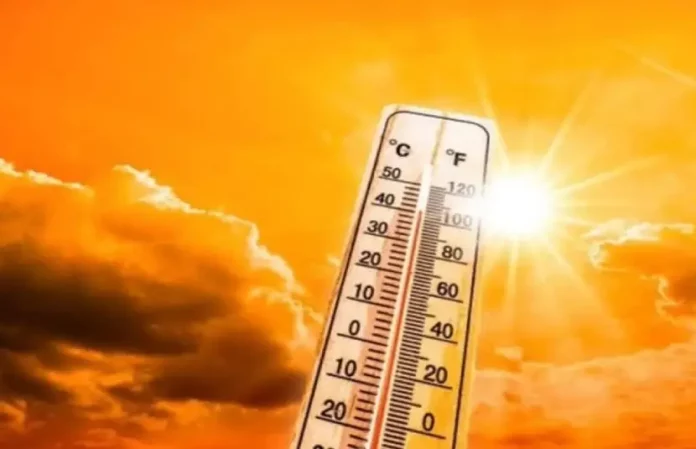
Climate Change Linked to Severe Heatwaves in India: New studies reveal that India’s heat waves are intensifying, posing significant challenges. Recent extreme weather events in April 2023, particularly in the east and south, have been attributed to climate change, making such occurrences 45 times more likely, according to the World Weather Attribution group.
Understanding the Link with Climate Change
Climate change has exacerbated the frequency and severity of heat waves. Traditional methods of measuring heatwaves based solely on high temperatures are inadequate. Current standards consider deviations from the norm, indicating that even moderate increases in temperature can trigger heatwave conditions. This nuanced understanding underscores how climate change is altering weather patterns.
Recent Evidence and Research
Previous studies have consistently linked climate change to anomalous temperature rises in March and April. Through attribution science, researchers can assess the statistical likelihood of these events in our current climate compared to a non-altered climate.
The Impact of Heatwaves
Heatwaves pose serious health risks, leading to dehydration and exacerbating existing health conditions. Uneven reporting of casualties underscores the need for improved data collection and reporting mechanisms. Despite progress made in implementing heat action plans, disparities in reported deaths persist.
Mitigation and Adaptation Strategies
India has implemented heat action plans in 23 states to mitigate health risks associated with heat waves. These plans include water management, adjusting work and school hours, and urban landscaping to reduce heat. Such measures align with broader efforts to enhance city resilience and adapt public health strategies to climate change challenges.
Climate Change and its Effects
Climate change has far-reaching implications beyond heatwaves:
- Clouds’ reduced ability to reflect sunlight.
- Peatlands store large amounts of carbon.
- Phytoplankton in oceans provide 85% of Earth’s oxygen.
- The potential release of ancient viruses from melting permafrost.
- Rising sea levels due to Greenland ice sheet melting.
- Expansion of the Sahara Desert.
- Changes in Earth’s rotation due to altered water distribution.
- Accelerated warming of the Arctic.
- Coral bleaching due to warmer sea temperatures.
- Projected GDP decline of 23% by 2050 due to extreme weather events.
The Impact on Asia
Asia, including India, has experienced record-breaking temperatures and heat waves, with April 2023 being particularly notable. Climate change has made these events significantly more likely and severe. The past year’s El Niño conditions contributed to the intensity of heatwaves, but the influence of climate change far outweighed natural variability.
Mercury Rising Across Asia
The WWA’s rapid study found that extreme temperatures across Asia were about 45 times more likely and 0.85 degrees Celsius hotter due to climate change. From Gaza to Delhi to Manila, people suffered as temperatures soared, highlighting the deadly consequences of continued reliance on fossil fuels.
What Lies Ahead
While India awaits the monsoon, heatwaves continue to affect various parts of the country. Northwestern India is bracing for another heatwave from May 16 onwards, with severe conditions expected in West Rajasthan, Punjab, and south Haryana.
Conclusion
India’s battle with heat waves underscores the urgent need for climate action. While heat action plans and mitigation efforts are underway, continued investments in resilience and adaptation are crucial to protect vulnerable populations and build a sustainable future.
Stay updated with the latest current affairs and insightful blog posts by following Freshersnow. Don’t miss out on future content that keeps you informed and engaged!
| You Can Also Check | |
| Current Affairs | |



